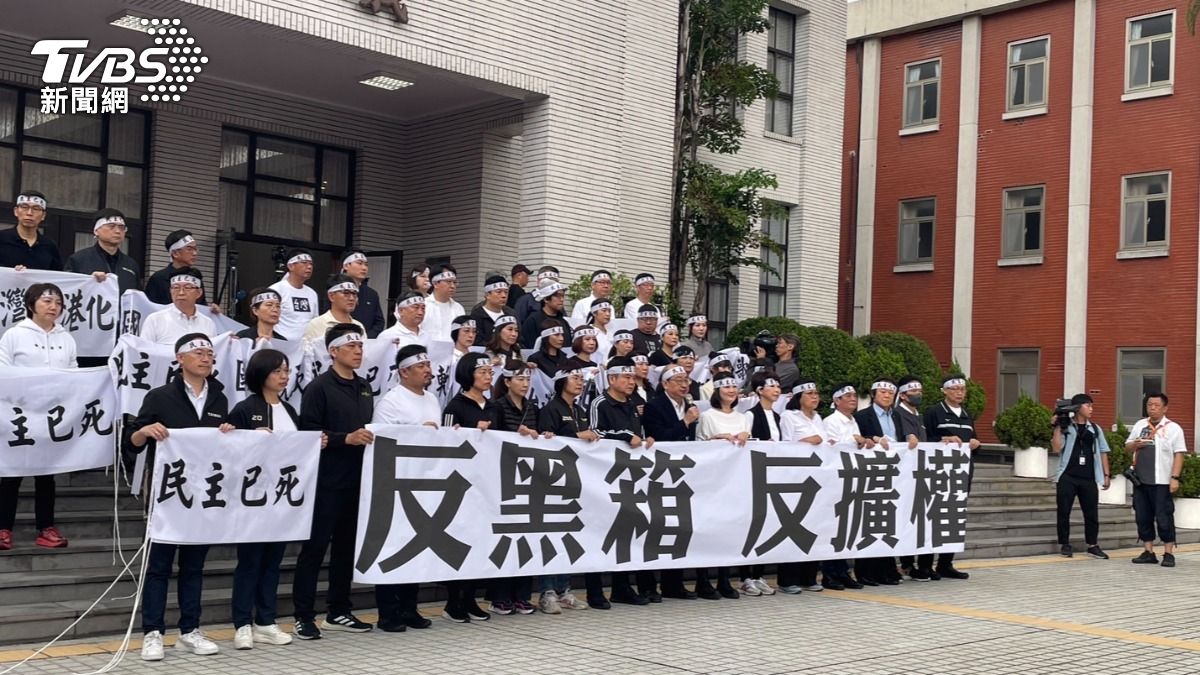TAIPEI (TVBS News) — The Legislative Yuan (立法院) on Tuesday (May 21) continued its review of bills related to parliamentary reform amid protests from 51 members of the Democratic Progressive Party (民進黨, DPP). They accused Legislative Speaker Han Kuo-yu (韓國瑜) of regressing democracy by 30 years, less than three months into his tenure.
During a press conference at 8:30 a.m., DPP lawmakers wore white headbands reading "Democracy is Dead" and held banners stating "Against Rigged Procedures, Against Dictatorship." DPP caucus secretary-general Rosalia Wu (吳思瑤) sharply criticized Han, while Ker Chien-ming (柯建銘), the party's caucus whip, posed three historical questions to the Kuomintang (國民黨, KMT) and the Taiwan People's Party (民眾黨, TPP), labeling them a "traitorous group."
Ker likened the Legislative Yuan's chamber to "China's National People's Congress (中國人大)" and the "Legislative Council of Hong Kong (香港立法局)," accusing the KMT and TPP of confiscating democracy and leading Taiwan towards the "Hong Kong-ization" of its parliament. He urged Han to reconvene negotiations, emphasizing the DPP's commitment to winning public support and discourse, even in defeat.
Ker's questions to the KMT and TPP challenged their rush to enact "traitorous acts" upon Vice President-elect Lai Ching-te's inauguration, questioning if these actions were directives from Chinese President Xi Jinping. He questioned the purpose of their election to the legislature, whether it was to stand against the nation and undermine democracy.
The DPP's dramatic protest and the ensuing debate underscore the deep political divisions in Taiwan, highlighting concerns over the island's democratic processes and its future relations with China. As tensions continue, the call for dialogue and a return to democratic norms becomes increasingly urgent.



